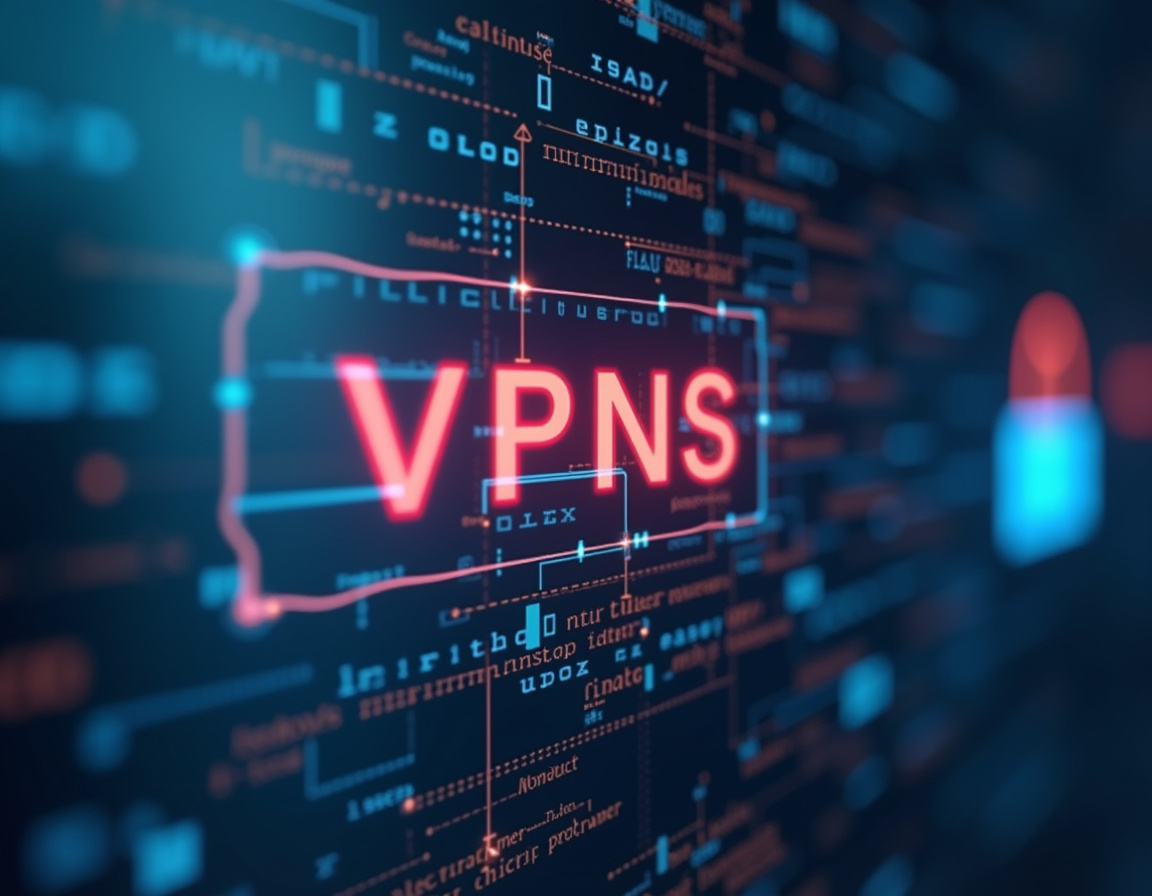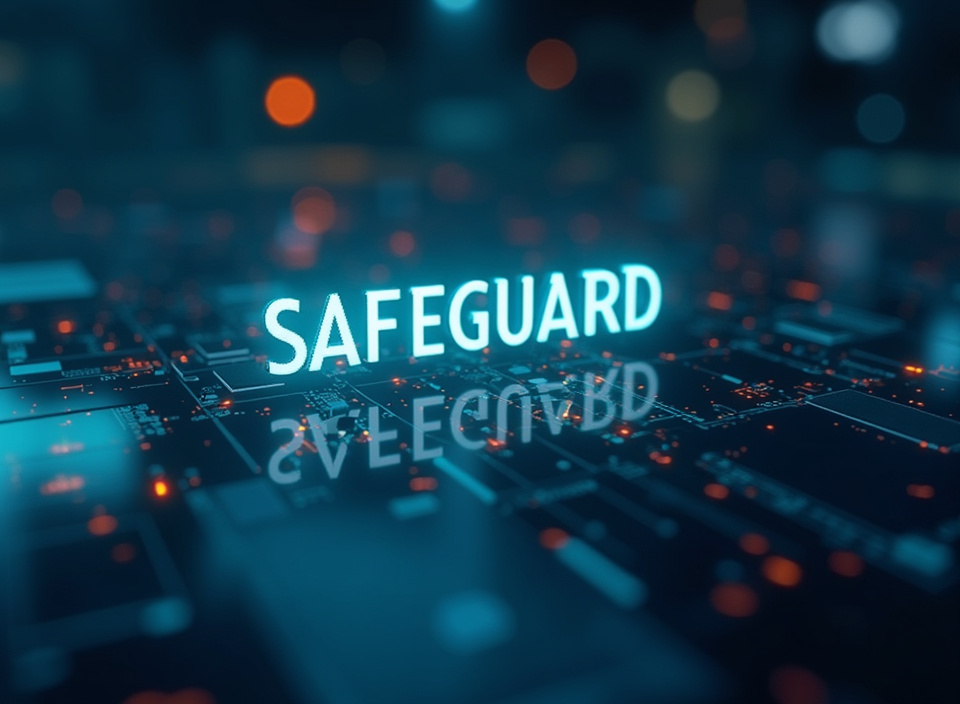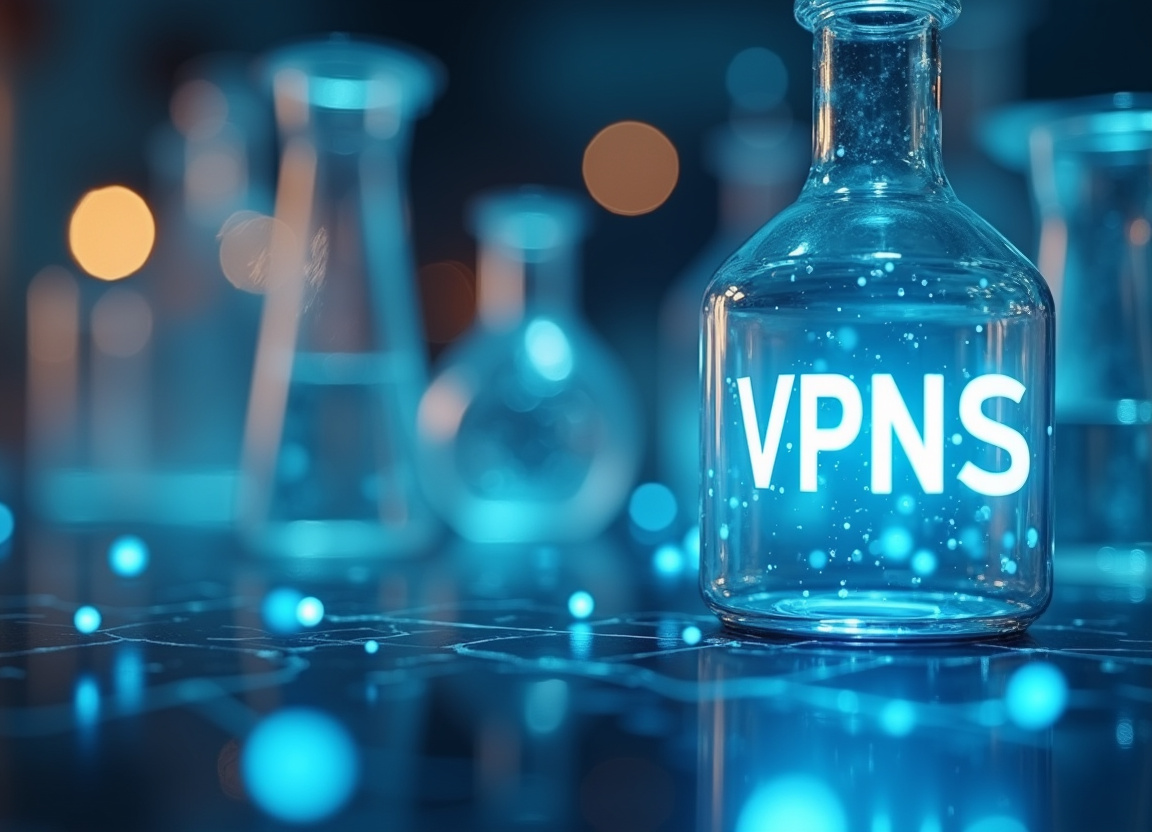VPNs for Robotics Teams: Securing Development Projects

Table of Contents
VPNs for Robotics Teams: Securing Development Projects
In the dynamic realm of robotics, where innovation is driven by seamless collaboration and the protection of sensitive data, implementing robust security measures is not just advisable—it’s essential. Robotics teams engaged in pioneering research, intricate design, and advanced development frequently encounter distinct challenges in safeguarding their intellectual property, research findings, and inherently collaborative endeavors. A Virtual Private Network (VPN) has surfaced as a pivotal tool in this landscape, serving as a robust shield against an array of potential threats while simultaneously facilitating secure and highly efficient teamwork.
This article delves into the critical importance of VPNs for modern robotics teams, meticulously exploring how they can significantly enhance project security, fortify research data protection strategies, and foster a secure environment for seamless collaborative development. The increasing prevalence of robotics and automated systems has spurred a significant surge in the creation, storage, and pervasive exchange of sensitive data. This encompasses a wide range of critical information, including confidential algorithms that power robotic movements and decision-making, proprietary hardware and software designs that contribute to a robot's unique capabilities, and highly valuable research data derived from extensive experimentation and testing.
This wealth of sensitive information makes robotics projects highly attractive targets for increasingly sophisticated and relentless cyberattacks. The potential consequences of a single security breach within a robotics project can be devastating, extending far beyond simple data loss. Such breaches can lead to the compromise of crucial intellectual property, the exposure of trade secrets, and the potential leakage of proprietary designs, all of which can result in substantial financial losses, severe reputational damage, the erosion of competitive advantages, and significant setbacks in the crucial race to innovation.
Therefore, robotics teams must place an unwavering emphasis on robust security measures and proactively adopt comprehensive strategies to protect their valuable digital assets. VPN technology offers a robust solution by providing a secure, encrypted tunnel for data transmission. This tunnel effectively encrypts all data as it travels between different locations or devices, rendering it virtually impossible for unauthorized parties to intercept, decipher, or tamper with sensitive information - ensuring the confidentiality and integrity of critical data in transit.
For robotics teams, this level of security is undeniably crucial, especially when team members engage in activities such as sharing confidential design files, collaboratively developing and debugging code, or remotely accessing critical resources located behind firewalls. By consistently utilizing a VPN, robotics teams can establish a high degree of confidence that their valuable data is protected from potential eavesdropping, unauthorized access, and malicious manipulation. Moreover, collaborative development forms the bedrock of virtually all modern robotics projects.
Robotics team compositions often consist of members working from diverse geographical locations, remotely sharing files, and accessing shared resources to develop and implement projects seamlessly. This paradigm inherently necessitates the establishment of secure, reliable communication channels to effectively mitigate the potential risks of unauthorized access and data breaches. VPNs play a pivotal role by enabling highly secure connections between all participating team members, regardless of their physical location, thereby fostering streamlined collaboration while simultaneously upholding stringent security standards.
The implementation of VPNs ensures that all communication taking place within the collaborative teams, including file transfers, code reviews, and remote access sessions, is consistently encrypted and securely authenticated. VPNs allow robotics teams to continue to operate seamlessly, while preventing data breaches, compliance violations, and erosion of their competitive advantages.
The High Stakes: Security Risks in Robotics Development
The core functionality of a VPN for robotics teams lies in its remarkable ability to establish a secure and encrypted connection seamlessly between various endpoints within their network infrastructure. This capability is particularly valuable for teams immersed in complex robotics projects that handle and process highly sensitive data, encompassing items such as advanced proprietary algorithms, exclusive and confidential designs, and significantly valuable research findings. In this context, the VPN operates effectively as a robust shield, purposefully rendering this sensitive data entirely unreadable and unusable to any unauthorized parties who may be attempting to intercept, access, or tamper with it.
When any team member connects to the internet resources through a meticulously configured VPN, their data is automatically encapsulated within a highly secure, encrypted tunnel. This means that, even if a malicious attacker were to successfully intercept the data transmission, they would only encounter scrambled or otherwise indecipherable information, effectively preventing them from extracting any useful insights or valuable intelligence. This level of robust encryption is typically achieved through the utilization of advanced and sophisticated cryptographic algorithms which have been carefully designed and rigorously tested to be virtually unbreakable using commercially available computing technology.
These algorithms employ complex mathematical functions to transform plaintext data into ciphertext, ensuring that only authorized parties with the correct decryption keys can access the original information. VPN technology provides a secure pathway for data access and protection, guaranteeing that all data transmitted by the robotics teams from internal or external entities is diligently encrypted, which effectively prevents any unauthorized eavesdropping attempts and sensitive data theft. For robotics teams involved in projects with especially stringent confidentiality requirements, this security component is of paramount importance.
The encrypted connections provided reliably by VPNs also offer safeguards against man-in-the-middle attacks, where individuals can intercept communication between two parties and impersonate or manipulate data as a middleman. VPNs use robust security measures to authenticate both the sender and receiver, ensuring secure communication is only achieved through trusted connections from verified communicators. This effectively prevents attackers from covertly injecting malicious code or surreptitiously stealing sensitive information as well.
Beyond the critical aspects of robust encryption, VPNs additionally provide an invaluable supplementary layer of robust online anonymity. By effectively masking the user's unique IP address, VPNs make it remarkably difficult for any malicious attackers to thoroughly track their online activities and therefore directly identify their precise geographical location. VPN’s improved user-based security is extraordinarily important for all involved robotics teams; including team working on contentious or otherwise sensitive projects where they may, inadvertently or by external sources, attract some considerable unwanted attention.
In addition to considerably enhancing overall security, VPNs can significantly optimize performance. The robust performance improvements provided by VPNs derive from well-optimized servers designed to improve overall available connection speeds and significantly reduce overall latency. Such optimized server functionality is incredibly beneficial for all robotics engineering focused teams when they are actively working with very extensive datasets or depend on real-time simulation collaborations.
Overlooked considerations for overall project security relate to the critical physical devices incorporated by networked infrastructures accessed by all robotics teams. VPN’s enhanced protocols complement critical data, while establishing clear access control policies, limited overall access to sensitive data and assigned individual account responsibilities, for version controlled code with adequate backups. To continue identifying vulnerabilities, regular security audits and careful penetration testing can further augment security measures.
Integrating robust VPNs allow teams to continually create security based postures that protect the assets of an organization.
Encrypted Tunnels: How VPNs Safeguard Robotics Data
Protecting research data and intellectual property constitutes a foundational concern for progressive robotics teams, and it is within this domain that a VPN truly demonstrates its unparalleled value and effectiveness. Robotics research inherently encompasses groundbreaking discoveries, remarkably innovative designs, and sophisticated proprietary algorithms, with each element holding immense intrinsic value. Any loss or even potential compromise of this highly sensitive data can inevitably lead to devastating consequences, manifesting as significant and potentially irreparable financial losses, debilitating competitive disadvantages in the marketplace, and extensive reputational damages that can take years to overcome.
In this high-stakes context, VPNs function as an indispensable bulwark strategically positioned against insidious data breaches and pervasive intellectual property theft. By meticulously encrypting all network traffic, VPNs effectively prevent any unauthorized access to sensitive research data, thereby establishing a formidable barrier against potential intruders and malicious actors. The value of this security measure is amplified when team members routinely engage in remote work or frequently access shared resources over public Wi-Fi networks, both of which are notoriously vulnerable to security breaches and data interception.
The robust encryption protocols implemented by VPNs ensure that even if a determined attacker manages to intercept the transmitted data, they will remain entirely incapable of deciphering or exploiting it, thereby safeguarding the integrity and confidentiality of the research data. In addition, implementing strict version control mechanisms, performing consistent backups, and using detailed accounting can prevent accidental data loss. VPNs contribute substantially to the safeguarding of research data by diligently protecting unauthorized access to all of the team's critical digital storage resources.
In conjunction with VPN encryption, it is vitally important to consistently apply robust version control mechanisms to all code and designs, maintaining comprehensive audit trails of changes. Additionally, frequent and secure data backups must be performed regularly to guard against potential data loss due to hardware failures, software corruption, or accidental deletions. VPN solutions often come equipped with an array of advanced features deliberately designed to bolster data security.
Among these features are Data Loss Prevention (DLP) capabilities and fortified Endpoint Security measures, each playing a distinct but complementary role in safeguarding valuable research data from both insidious internal and malicious external threats. DLP features are engineered to vigilantly prevent sensitive data from being inadvertently or intentionally leaked outside the secure confines of the organization's network, thereby minimizing the risk of data exfiltration. Endpoint Security measures, on the other hand, focus on safeguarding individual devices, such as laptops and workstations, from a myriad of threats, including malware infections, phishing attacks, and other prevalent security risks.
Robotics teams often engage with external partners, including collaborative universities, specialized research institutions, and synergistic industry collaborators. Sharing research data with these collaborative partners necessitates careful consideration of security protocols and potential vulnerabilities. VPNs facilitate secure and controlled data sharing by establishing encrypted communication channels between the robotics team and their trusted partners, therefore maintaining security.
Implementing these protocols is vital for companies to be compliant with current company safety guidelines and laws. Compliance and enforcement mechanisms, such as GDPR and CCPA, regulate various data access restrictions. VPNs can help companies demonstrate and maintain GDPR/CCPA compliance.
The essence of collaborative development within robotics teams lies in the secure and seamless exchange of information, code, and design elements. However, this collaborative process inherently introduces potential vulnerabilities that must be meticulously addressed. Utilizing a VPN in this collaborative environment provides a secure communication channel, effectively mitigating the risks associated with data breaches and unauthorized access.
By encrypting all data transmitted between team members, a VPN ensures that even if an attacker intercepts the communication, the information remains unintelligible and unusable. This safeguards sensitive data during collaborative activities such as code reviews, file sharing, and remote debugging. Robotics team members will feel safe collaborating with each other, and exchanging information through a secure channel.
VPN solutions extend beyond mere encryption; they also offer robust authentication mechanisms. These mechanisms verify the identity of each team member attempting to access the network, preventing unauthorized individuals from infiltrating the collaborative environment. Multi-factor authentication, a common feature in VPN solutions, adds an extra layer of security by requiring users to provide multiple forms of identification, such as a password and a one-time code sent to their mobile device.
This significantly reduces the risk of unauthorized access, even if an attacker manages to obtain a team member's credentials. Also, limiting and restricting access to documents is another tool to prevent data breaches among team members. Centralized control over access permissions constitutes a critical aspect of project security within collaborative robotics teams.
A VPN, when properly implemented, facilitates granular control over who can access specific resources. Team leaders can define roles and responsibilities, assigning specific permissions to individuals or groups based on their project involvement. This ensures that only authorized personnel can access sensitive data, minimizing the risk of accidental or malicious data breaches.
Furthermore, the VPN can create a secure and isolated network segment for each project being developed, guaranteeing only the users of that team and project have access to any sensitive information. Regular security audits and vulnerability assessments are indispensable for identifying and mitigating potential weaknesses in the collaborative development environment. A VPN can facilitate these assessments by providing secure access to network monitoring tools and security information and event management (SIEM) systems.
These systems can detect anomalous behavior, identify potential threats, and provide valuable insights into the overall security posture of the collaborative development environment. By regularly monitoring network activity and analyzing security logs, robotics teams can proactively identify and address potential vulnerabilities, preventing data breaches and maintaining the integrity of their collaborative projects. The need for a secure collaborative development environment extends beyond internal team members.
Robotics teams frequently collaborate with external partners, such as research institutions, universities, and industry collaborators. Sharing sensitive data with these partners requires stringent security measures to protect intellectual property and prevent data breaches. A VPN can create secure tunnels between the robotics team's network and the networks of their external partners, allowing them to securely exchange data and collaborate on projects.
These tunnels encrypt all data transmitted between the organizations, ensuring that only authorized personnel have access to sensitive data, reducing compliance risks and protecting project integrity. In additon, it is imperitive that employees continue using this VPN collaboration environment to ensure trust among partners and project security.
VPNs offer a multitude of benefits to robotics teams, ranging from enhanced security and data protection to streamlined collaboration and improved compliance. However, it's imperative to acknowledge that the effectiveness of a VPN hinges on its proper configuration and ongoing management. A poorly configured VPN can introduce vulnerabilities and undermine the very security it's intended to provide.
Robotics teams should carefully consider various factors when selecting and implementing a VPN solution to maximize its benefits and minimize potential risks. Choosing the right VPN can be daunting, especially with the wide array of options available in the market. Robotics teams must meticulously assess their specific needs and requirements before making a decision.
Key factors to consider include the level of encryption offered by the VPN, the number of servers and locations available, the VPN's compatibility with different operating systems and devices, and the provider's reputation for security and privacy. A VPN’s security protocols are directly related to project integrity. If one protocol is not safe, or is subject to a security breach, the whole VPN network could go under.
The implementation of a robust VPN solution is not a one-time task; it necessitates ongoing maintenance and diligent monitoring to ensure its continued effectiveness. Regular software updates are crucial to patch security vulnerabilities and keep the VPN up-to-date with the latest security threats. Security parameters always need to be evaluated with the collaboration of all team members which are subject to the implemented VPN, ensuring best and robust practices .
Consistent monitoring of network traffic and security logs is essential for detecting anomalous behavior and identifying potential security breaches. Robotics teams should establish clear procedures for responding to security incidents and regularly train their members on security best practices. Also providing new training to team members will keep them up to date with the security protocols.
Robotics teams must recognize that a VPN is not a panacea for all security challenges. It is merely one component of a comprehensive security strategy that should encompass a range of measures, including strong passwords, multi-factor authentication, regular security audits, and employee training. A holistic approach to security provides the most effective defense against evolving threats.
This can be ensured with providing clear plans and information to customers and potential partners. Moreover, the legal and regulatory landscapes surrounding data privacy and security are constantly evolving. Robotics teams must stay abreast of these changes and ensure that their VPN usage complies with all applicable laws and regulations like GDPR and CCPA.
Consulting with legal counsel can help robotics teams navigate the complexities of data privacy compliance and minimize the risk of costly penalties. VPNs can help companies demonstrate their trustworthiness and security capabilities to prospects, by ensuring their information is safely stored. In conclusion, while VPNs can significantly strengthen the security posture of robotics teams involved in sensitive development projects, it's paramount to approach their implementation strategically and view them as integral components of a broader, well-defined security framework.
The synergistic combination of a properly configured and managed VPN, coupled with robust internal security policies, consistent employee training, and unwavering adherence to relevant legal and regulatory standards, forms a formidable defense against evolving cyber threats and safeguards the invaluable intellectual property of robotics teams. By adopting this holistic perspective, robotics teams can confidently embrace the benefits of collaborative development while mitigating the inherent risks, paving the way for continued innovation and success in the dynamic field of robotics. VPN providers generally use shared IPs to anonymize your traffic to avoid personal information from going public and being collected for marketing.
In some instances, a dedicated IP may be preferred for specialized usages such as running a server behind a VPN.
Stay Updated
Get the latest VPN news, tips, and exclusive deals to your inbox.




